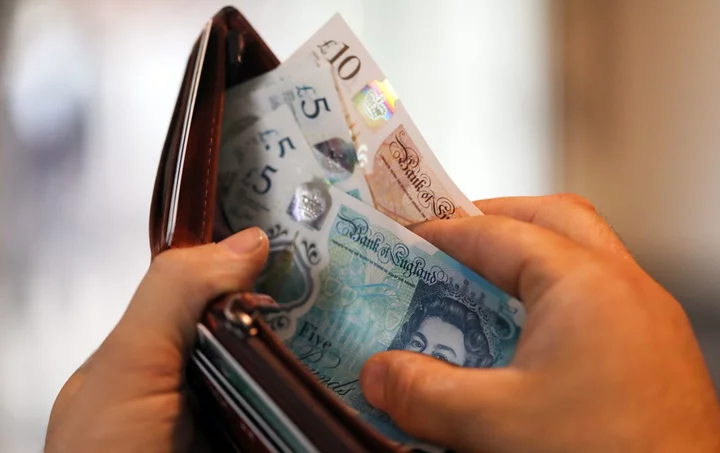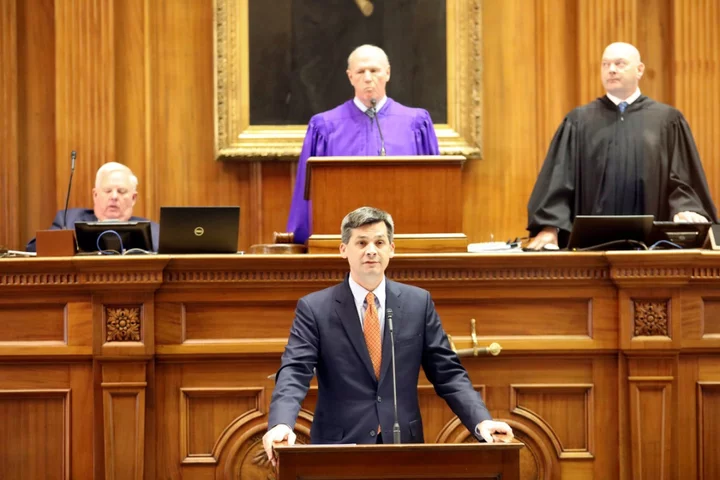UK households are still sitting on £280 billion ($349 billion) of “excess savings” accumulated during the pandemic, according to Fitch Ratings, and are unlikely to spend them any time soon.
Analysis from economists at the credit rating company suggested that, unlike their US counterparts, British consumers haven’t drawn on the stockpiles of cash they built up during lockdowns to supplement their spending in the face of red-hot inflation.
Fitch’s report reignites a debate which emerged in the aftermath of the Covid-19 pandemic about how much households had saved — and whether the run-down of these savings has added to inflationary pressures in the UK.
While BOE Chief Economist Huw Pill said recently that much of the cash piles have probably now been eroded — a hunch shared by BOE Deputy Governor Ben Broadbent — Fitch’s analysis presents a different picture.
“Fitch estimates that since the start of 2020, households have saved an extra £280 billion,” economists Jessica Hinds and Brian Coulton wrote in a note. “In contrast to the US, where the saving ratio has been below average since late 2021, UK households have, like many of their western European peers, not drawn on savings to fund consumption.”
Hinds said that the BOE in latest Monetary Policy Report appeared to be focusing on deposits as a share of income when calculating excess savings. This may not capture money being squirreled away into pensions and other savings products, she said.
The BOE also talks about savings being “eroded.” “I’d make the point that erosion is not necessarily the same as a drawdown,” Hinds said. “In the UK, it is absolutely the case that due to high inflation, households’ savings and stock of bank deposits go nowhere near as far as they did 18 months ago, and that will definitely contribute to weak consumer spending. But that doesn’t necessarily mean that the extra saved in nominal terms since the start of the pandemic is disappearing in the UK.”
If Britons are indeed still sitting on piles of excess savings, the risk still remains that they will be spent — putting upward pressure on prices and forcing policy-makers to begin hiking interest rates again.
Hinds and Coulton said however that there was little risk of this, because most of the excess savings were held by wealthier households who are less inclined to spend and instead will invest in property or pensions. Many consumers may be also holding on to savings pots, fearing higher mortgage rates or rents, they added.









